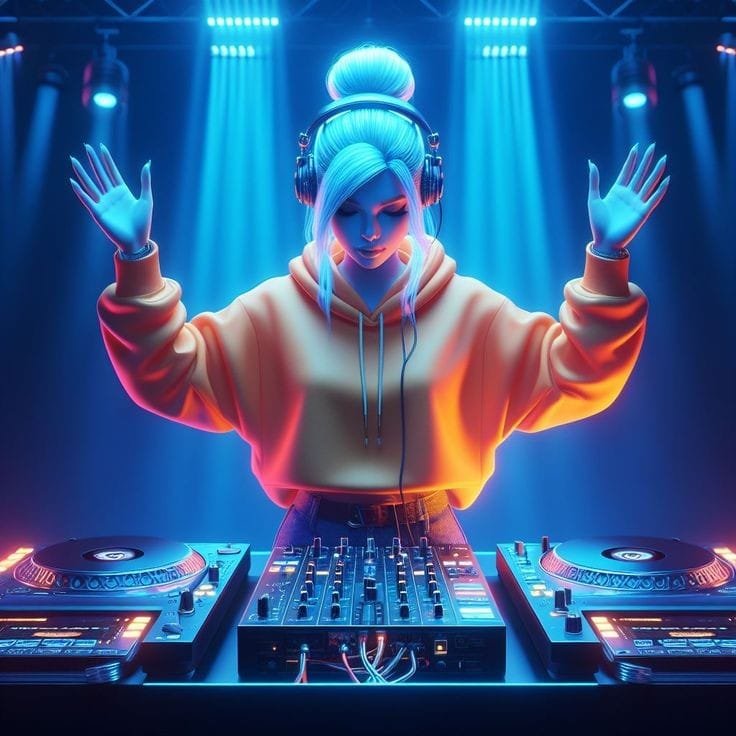music artificial intelligence: Unlocking Limitless Possibilities in Sound and Rhythm
In the ever-evolving world of music artificial intelligence (AI) has emerged as a silent yet powerful collaborator behind the scenes. While AI generated tracks and compositions often steal the spotlight the real game changer is how AI is reshaping the production process. From streamlining workflows to enhancing creative possibilities AI is redefining the boundaries of whats possible in music production. Lets explore how AI is making its mark behind the curtains.
Improving Audio Quality with AI
One of the most significant contributions of AI in music production is its ability to enhance audio quality. AI powered tools can analyze audio tracks identify imperfections and automatically correct them. Noise reduction audio restoration and even pitch correction are now more efficient and precise thanks to machine learning algorithms. These tools not only save time but also ensure a level of consistency and quality that was previously difficult to achieve.
Automating Repetitive Tasks
Music production involves numerous repetitive tasks that can be both time-consuming and tedious. AI automation helps producers focus on the creative aspects by handling these tasks. For instance AI can automate the process of mixing and mastering adjusting levels and applying effects based on learned patterns from successful tracks. This automation accelerates the production process allowing artists to bring their music to life faster than ever before.
Creative Sound Design
AI is also pushing the boundaries of sound design. By using deep learning algorithms, AI can generate entirely new sounds and textures that were previously unimaginable. Producers can input parameters or even use natural language descriptions to create unique sounds giving them an expansive palette for creativity. This capability is particularly useful for genres that thrive on innovative soundscapes such as electronic and experimental music.
AI in Composition and Arrangement
Beyond sound design AI plays a crucial role in composition and arrangement. With the advent of AI driven composition tools musicians can now collaborate with algorithms to create melodies harmonies and rhythms. These tools often use vast datasets of existing music to generate new compositions that maintain musicality and coherence. The result is a seamless blend of human creativity and machine precision.
One notable application of this technology is the text to music AI generator which transforms written text into musical compositions. This innovation allows producers to experiment with new ways of storytelling and emotional expression through music, opening up a world of possibilities for both artists and listeners.
Personalizing Music Experiences
AIs ability to analyze data is also transforming the way music is tailored to individual listeners. By examining user preferences and listening habits AI can create personalized playlists and recommend tracks that match specific moods or activities. This personalized approach not only enhances the listeners experience but also provides valuable insights for producers and artists about audience preferences helping them to craft music that resonates more deeply with their fans.
Collaborative AI Tools
AI is increasingly becoming a collaborative partner in the studio. Tools like AI powered virtual assistants can provide real time feedback on compositions suggest chord progressions and even offer lyric suggestions. These assistants act as co creators helping artists overcome creative blocks and refine their work. The collaborative nature of these tools fosters a dynamic creative environment where ideas can be explored and developed more efficiently.
Ethical Considerations and Challenges
While the benefits of AI in music production are undeniable, it’s essential to address the ethical considerations and challenges that come with it. Issues such as copyright infringement, the authenticity of AI-generated content, and the potential displacement of human jobs in the industry are critical discussions that need to be had. As AI continues to integrate into music production, finding a balance between technological advancement and ethical responsibility will be crucial.
The Future of AI in Music Production about music artificial intelligence
Looking ahead, the role of AI in music production is poised to expand even further. Innovations in machine learning and data analytics will continue to drive new possibilities from creating hyper realistic virtual instruments to developing AI that can mimic the nuances of human performance. As AI becomes more sophisticated it will not only augment the creative process but also redefine the very essence of music production.
In conclusion AI s behindnthe scenes contributions to music production are both transformative and invaluable. By enhancing audio quality automating tedious tasks and enabling new creative possibilities AI is empowering artists to push the boundaries of their craft. As we embrace these technological advancements we can look forward to a future where human creativity and artificial intelligence harmoniously coexist producing music that is richer more diverse, and profoundly innovative.


